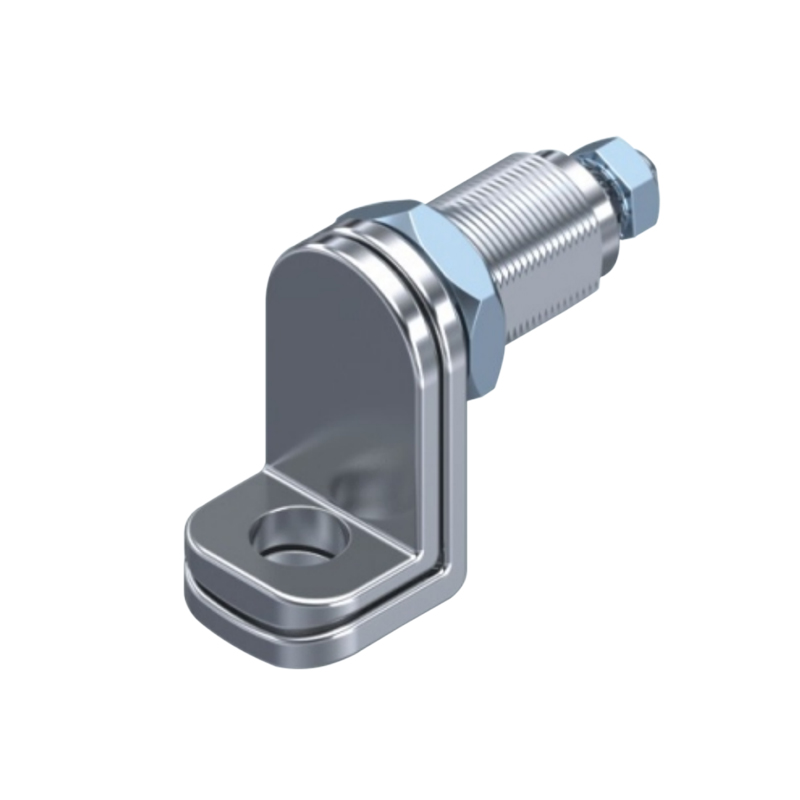Why Are Cabinet Locks Essential for Security and Organization?
2024-12-24
Cabinet locks are often overlooked when we think about home or office security. However, these small but powerful tools play an essential role in safeguarding both physical and digital assets. Whether you're securing sensitive files in an office, valuable items in your home, or keeping dangerous substances away from children, cabinet locks provide peace of mind and a heightened sense of safety. So, why exactly are cabinet locks essential for security and organization? Let's dive deeper into the reasons behind their importance.
What Is a Cabinet Lock and Why Do You Need One?
A cabinet lock is a locking mechanism that is used to secure cabinets, drawers, or other storage units. They come in various forms, including key-operated locks, combination locks, electronic locks, and even biometric locks. Depending on the level of security required, you can choose a lock that best fits your needs.
How Do Cabinet Locks Improve Security?
1. Protection of Valuables
Whether it’s your personal documents, expensive electronics, or precious jewelry, cabinet locks serve as a first line of defense against theft. By locking away valuable items, you reduce the risk of them being accessed by unauthorized individuals. This is particularly important in workplaces where employees may have access to private client information or sensitive company data.
2. Childproofing Your Home
If you have young children, keeping harmful substances such as cleaning chemicals, medications, and sharp objects out of reach is crucial for their safety. Cabinet locks are an effective way to ensure that curious little hands cannot access these items. With childproof locks, you can rest assured that your cabinets are safely secured without compromising your home’s aesthetic.
3. Preventing Unauthorized Access
In offices or public spaces, it’s essential to restrict access to certain cabinets that contain confidential files or restricted materials. A cabinet lock ensures that only authorized personnel can open those drawers or cabinets, reducing the risk of unauthorized access, identity theft, or data breaches.
4. Fire and Water Safety
Some cabinets, especially those in industrial or laboratory settings, may store flammable or hazardous materials. The importance of securing these items with a reliable cabinet lock cannot be overstated. In the event of a fire or water damage, keeping potentially dangerous substances properly secured can minimize risks to people and property.
How Do Cabinet Locks Contribute to Organization?
1. Keep Things Neat and Tidy
A locked cabinet is not just about security; it’s also about keeping things organized. With a cabinet lock, you can designate specific areas for storage and make sure that only certain people have access to those items. This can help reduce clutter and keep your workplace or home organized, especially in environments where many people share space or equipment.
2. Prevent Unwanted Interference
If you have sensitive work or personal projects that require uninterrupted time, cabinet locks can help protect your materials from interference. Whether it’s a confidential project or an item that needs to stay undisturbed, locking it away ensures that no one can tamper with it.
3. Protect Your Documents and Files
Physical document storage is still a common practice in many businesses and households. However, as paper files can be easily accessed by anyone, it's essential to protect sensitive documents. A cabinet lock offers a secure place to store important paperwork, keeping it safe from unauthorized eyes and ensuring that your personal or professional information remains private.
What Types of Cabinet Locks Are Available?
1. Key-Operated Locks
The most traditional and simple type of lock, key-operated locks require a physical key to open. These are widely used for personal storage spaces and offer basic security. They are reliable and straightforward but can be lost or misplaced.
2. Combination Locks
If you prefer not to rely on physical keys, combination locks offer an alternative. These locks require a specific combination of numbers to open, making them a great option for added security without the need for a key.
3. Electronic and Smart Locks
For a more modern and high-tech option, electronic and smart cabinet locks are a great choice. These locks can be accessed using keypads, smartphone apps, or even biometric systems like fingerprints. They provide additional security and convenience, especially in high-traffic areas or for cabinets containing highly sensitive materials.
4. Magnetic Locks
Often used for childproofing, magnetic cabinet locks are hidden from view and only accessible with a special key or magnetic tool. These locks are highly effective at keeping curious children away from hazardous items, as they are virtually invisible when installed.
5. Slide Bolt Locks
Slide bolt locks are commonly used for securing larger cabinets or storage units. They are easy to install and operate but provide a more basic level of security compared to more advanced locking mechanisms.
Are There Any Challenges to Consider with Cabinet Locks?
While cabinet locks offer numerous advantages, there are some challenges to keep in mind when choosing and installing them:
1. Choosing the Right Type
With so many options available, selecting the best cabinet lock for your needs can be overwhelming. Consider the level of security required, the type of items being stored, and whether you need to give access to multiple users.
2. Installation
Some cabinet locks may require professional installation, especially if you are opting for electronic or smart locks. Additionally, installation might involve drilling holes or altering the structure of your cabinets, which could be a concern for those looking to maintain the aesthetic of their furniture.
3. Potential for Lost Keys or Forgotten Combinations
While electronic locks provide easy access, traditional key-operated and combination locks come with the risk of losing keys or forgetting combinations. To avoid this, make sure to have backup keys or keep a secure record of the combinations.
4. Maintenance
Just like any other mechanical device, cabinet locks may require occasional maintenance to ensure they continue to function properly. This includes lubricating the locks or replacing keys when necessary.
Conclusion
In conclusion, cabinet locks are not just about security—they are also about ensuring organization, safety, and peace of mind. From protecting valuable items to securing sensitive documents, these locks are essential in many environments, including homes, offices, and industrial spaces. With various options available, it’s easy to find the right lock to fit your specific needs and improve both the security and organization of your space.



